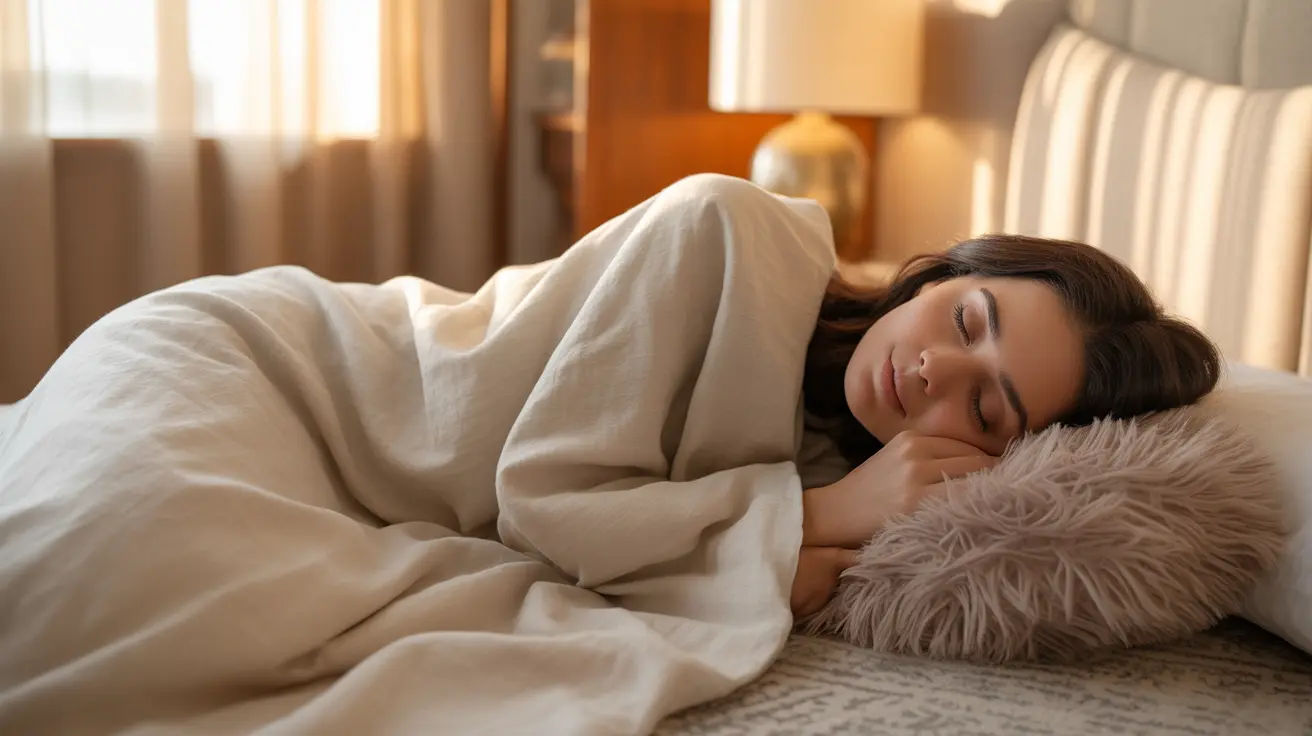If you've ever experienced hip pain that intensifies during nighttime hours, you're not alone. This frustrating condition can significantly impact your sleep quality and overall well-being. Understanding the causes and implementing effective solutions can help you regain restful nights and better manage your hip discomfort.
In this comprehensive guide, we'll explore the various causes of nighttime hip pain, effective treatment options, and practical strategies for finding relief while you sleep.
Common Causes of Nighttime Hip Pain
Hip pain that worsens at night can stem from several different conditions and factors:
Bursitis
Hip bursitis, particularly trochanteric bursitis, often becomes more noticeable at night. This condition involves inflammation of the fluid-filled sacs that cushion your hip joints, typically causing sharp pain when lying on the affected side.
Osteoarthritis
Degenerative joint disease can cause hip pain that intensifies during periods of rest and inactivity, making nighttime particularly uncomfortable. The pain typically feels dull and achy, and may be accompanied by morning stiffness.
Tendinitis
Inflammation of the tendons around the hip can cause pain that worsens with prolonged periods of rest, particularly affecting side-sleepers who put direct pressure on the affected area.
Optimizing Sleep Position for Hip Pain Relief
The way you position yourself during sleep can significantly impact hip pain levels:
- Sleep on the unaffected side with a pillow between your knees
- Use a body pillow for additional support
- Consider sleeping on your back with a pillow under your knees
- Invest in a medium-firm mattress that provides adequate support
Effective Treatment Approaches
Immediate Relief Strategies
Several methods can help manage hip pain during nighttime hours:
- Apply ice or heat therapy before bed
- Take over-the-counter anti-inflammatory medications as directed
- Use compression garments designed for hip support
- Practice gentle stretching exercises before bedtime
Long-term Management
For lasting improvement, consider these approaches:
- Regular physical therapy exercises
- Weight management to reduce pressure on hip joints
- Low-impact exercise routines
- Proper posture maintenance throughout the day
When to Seek Medical Attention
While some hip pain can be managed at home, certain situations warrant professional medical evaluation:
- Severe pain that consistently disrupts sleep
- Pain accompanied by swelling or redness
- Difficulty bearing weight on the affected hip
- Pain that persists for several weeks despite home treatment
- Any sudden, severe hip pain
Frequently Asked Questions
What are the most common causes of hip pain that only occurs at night?
The most common causes include bursitis, osteoarthritis, tendinitis, and poor sleeping position. These conditions often become more noticeable at night due to increased pressure on the joint while lying down and reduced movement during sleep.
How can changing my sleep position help relieve hip pain at night?
Adjusting your sleep position can significantly reduce hip pain by minimizing pressure on the affected area. Sleeping on your unaffected side with a pillow between your knees or on your back with supported knees can help maintain proper hip alignment and reduce discomfort.
What treatments or home remedies are effective for managing hip pain while sleeping?
Effective home remedies include applying ice or heat therapy before bed, using supportive pillows, performing gentle stretches, and taking over-the-counter anti-inflammatory medications. A supportive mattress and proper sleeping positions are also crucial for pain management.
When should I see a doctor about hip pain that wakes me up at night?
Consult a healthcare provider if you experience severe pain that consistently disrupts sleep, pain accompanied by swelling or redness, difficulty bearing weight, or pain that persists for several weeks despite home treatment measures.
How do exercise and stretching impact hip pain at night and what types are recommended?
Regular exercise and stretching can help strengthen hip muscles, improve flexibility, and reduce nighttime pain. Low-impact activities like swimming, walking, and gentle yoga are recommended. Specific exercises should target hip flexors, glutes, and core muscles, but should be approved by a healthcare provider.




